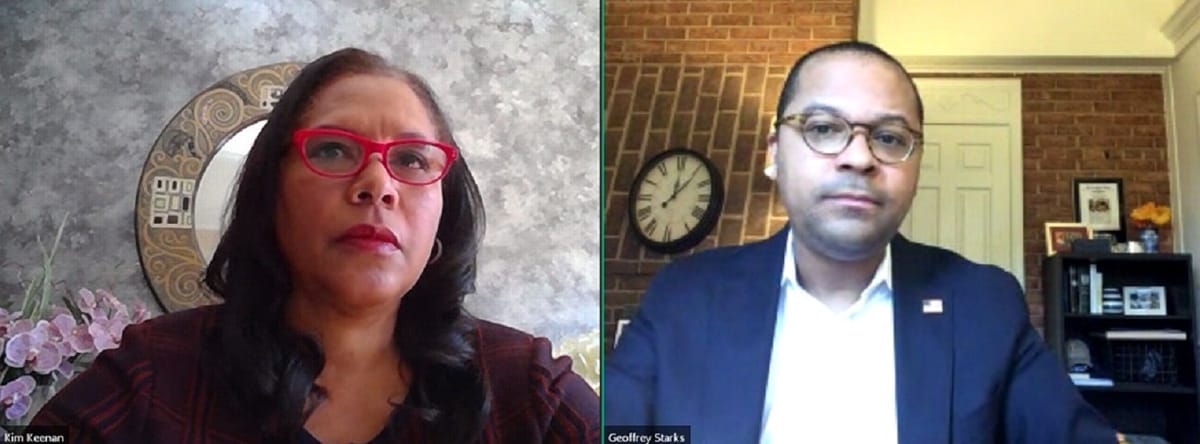Federal Communications Commission Seeking Black Hires, Geoffrey Starks Says
March 13, 2021 – Federal Communications Commissioner Geoffrey Starks said Wednesday that he is making recruiting from historically black colleges and universities a priority as Black Americans increasingly fall in low-income demographics. Speaking at a Wednesday forum on combatting systemic inequali
Derek Shumway

March 13, 2021 – Federal Communications Commissioner Geoffrey Starks said Wednesday that he is making recruiting from historically black colleges and universities a priority as Black Americans increasingly fall in low-income demographics.
Speaking at a Wednesday forum on combatting systemic inequality before the Internet Innovation Alliance, Starks said there are a number of technical jobs, including engineering and legal, at the FCC.
In order to alleviate financial strain – and to tackle the problem of low-income Black Americans from taking on free internships for experience — Starks said he restarted paid internships at the agency to make sure that Blacks can both work and get the training they need.
“I’ll never forget that I sat down with a single mother of three,” Starks said as he recounted a story of him visiting the historic Selma, Alabama, community where he met a single mother of three children.
The mother shared with him her gratitude for broadband as it helped her complete assignments that eventually led her to get an online degree. Her children were also able to finish their homework safe at home instead of wandering the streets alone trying to find a Wi-Fi connection like others did, he said.
Starks also said that bold advocacy for reliable and affordable broadband in low-income communities, particularly for Black, Latino, and tribal households.
He said the COVID-19 pandemic has clearly reminded people of the shared commonality in healthcare, economic, and education opportunities. With no adequate broadband, such opportunities could be dashed.
The Emergency Broadband Benefit program, a supplement to Lifeline, is now the only program now designed to connect low-income individuals, said Starks. He said it will obviously “lift the boats of a number of people of color.”
While many people suffer in the digital divide, Starks said that those same people likely also suffer from food insecurity and may be on the government’s supplemental nutrition program. In passing the Emergency Broadband Benefit, Congress has specifically targeted food and digital support to ensure children’s daily needs and digital needs are being met, he said.
Starks also recounted meeting Willie Brewster, a principal from the Brenda Scott Academy in Detroit, Michigan – a school where more than 88 percent of the students there are Black. Among all students, 80 percent qualify for free or reduced price lunches.
Regarding historically black colleges and universities, Starks said he believed they need to have tools to continue shaping the leaders of tomorrow. “It is HBCU students, faculty, and alumni who continue to push for justice,” he said. According to the commissioner, 75 percent of students at such universities qualify for Pell grants, fulfilling a requirement making them eligible for the Emergency Broadband Benefit.
The discussion concluded with a lightning round “getting to know you” questions. When asked whether he prefers self-driving or flying cars, Starks replied, “a flying car is two deviations away from what I know.” He sided with self-driving cars.
He also prefers a phone to a tablet, and his favorite superhero is Black Panther.









Member discussion